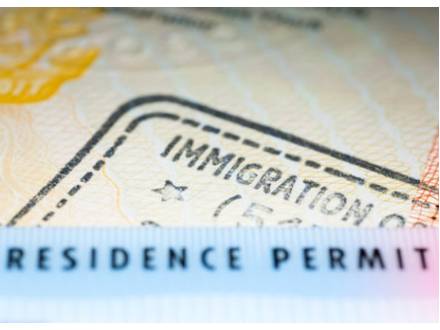Recent Blog Posts
Is Traveling Currently Risky During the Immigration Crackdown?
 A U.S. citizen who landed at an airport near Seattle in February waited, along with her aunt, in the same line to go through customs. While the one woman went through customs quickly, as she waited for her aunt the minutes soon turned into hours. Many hours later, the woman found that her aunt had been detained by U.S. Customs and Border Protection (CBP).
A U.S. citizen who landed at an airport near Seattle in February waited, along with her aunt, in the same line to go through customs. While the one woman went through customs quickly, as she waited for her aunt the minutes soon turned into hours. Many hours later, the woman found that her aunt had been detained by U.S. Customs and Border Protection (CBP).
The aunt is a lawful permanent resident who has lived in the U.S. for more than 50 years, ever since she and her family immigrated to the U.S. from the Philippines. Over the years, she has traveled between countries with her green card, never having any problems whatsoever.
After the family of the woman who was detained hired a lawyer, they finally found out that her detainment was due to a criminal conviction that was over 20 years old – and for which she completed all court requirements. She was transferred by ICE to a Tacoma processing center, where she will remain until her hearing date in July. Unfortunately, any past infraction – no matter how small - can turn into a major issue for immigrants, especially at border crossings and airports.
Illinois Venezuelans Could Soon Lose Deportation Protections
 In the coming weeks, tens of thousands of Venezuelans living and working in Illinois could find themselves at risk of deportation. The current administration has said it will halt the 2023 Temporary Protected Status (TPS) for Venezuela on April 7th. Without temporary protected status, many of these individuals will be left without legal status, resulting in the loss of work permits and any financial assistance they are currently receiving.
In the coming weeks, tens of thousands of Venezuelans living and working in Illinois could find themselves at risk of deportation. The current administration has said it will halt the 2023 Temporary Protected Status (TPS) for Venezuela on April 7th. Without temporary protected status, many of these individuals will be left without legal status, resulting in the loss of work permits and any financial assistance they are currently receiving.
Immigration as a whole is currently in a state of flux, making it difficult for those who are here lawfully or unlawfully to know what is best. If you or a loved one came to the U.S. under the 2023 TPS designation, you may be extremely anxious about your future. It can be very helpful to speak to a knowledgeable Itasca, IL immigration lawyer.
Laken Riley Act Would Detain Migrants Charged with Shoplifting
 The first bill signed by the new administration was the Laken Riley Act, named after a slain Georgia nursing student. The Act requires the detention of unauthorized immigrants who have been accused of theft or of a violent crime. Laken Riley was reportedly out for a run when she encountered a man who killed her during a struggle.
The first bill signed by the new administration was the Laken Riley Act, named after a slain Georgia nursing student. The Act requires the detention of unauthorized immigrants who have been accused of theft or of a violent crime. Laken Riley was reportedly out for a run when she encountered a man who killed her during a struggle.
The man was later found guilty of murder by a judge and sentenced to life without parole. Because the man was arrested in 2022 for illegal entry into the United States, many believed he would not have had the opportunity to kill the nursing student if the current bill had been in place. The pros and cons of the bill are detailed below; however, if you have any questions about this bill or other immigration issues, speak to an Itasca, IL, immigration attorney.
What Does the Laken Riley Act Do?
The Laken Riley Act gives state attorneys general the ability to sue the federal government for any harm caused by immigration enforcement decisions that harm the state or its residents. This could include failing to detain an undocumented immigrant who has received deportation orders or releasing an undocumented immigrant from custody.
Chicago Releases "Know Your Rights" Ad Campaign for Immigrants
 The city of Chicago has launched an ad campaign on the CTA (Chicago Transport Authority) System as communities brace for potential ICE raids directed by the current administration. The campaign is called "Know Your Rights" and is intended to help unauthorized immigrants in the city understand their rights and know how to react to ICE raids and deportation proceedings.
The city of Chicago has launched an ad campaign on the CTA (Chicago Transport Authority) System as communities brace for potential ICE raids directed by the current administration. The campaign is called "Know Your Rights" and is intended to help unauthorized immigrants in the city understand their rights and know how to react to ICE raids and deportation proceedings.
The ads for this campaign are currently being displayed on more than 400 screens across the CTA system. These ads contain a QR code that directs riders to the city website, which also includes a flyer with information on what to do if ICE comes to your home or workplace, how to prepare for an ICE raid, a resource guide, and an FAQ page.
The Mayor of Chicago said in a statement that "Chicago will always be a Welcoming City, not just by ordinance but also with our inclusive and loving spirit." If you have additional immigration questions or concerns, it can be beneficial to speak to an experienced Itasca, IL immigration attorney.
Will Sanctuary Laws Actually Protect Undocumented Migrants?
 When the new administration takes place, there may be many changes to immigration laws currently in place, along with promised mass deportations. In the state of Illinois, such measures could impact about half a million undocumented immigrants in the state, including about 30,000 DACA recipients.
When the new administration takes place, there may be many changes to immigration laws currently in place, along with promised mass deportations. In the state of Illinois, such measures could impact about half a million undocumented immigrants in the state, including about 30,000 DACA recipients.
Because it has laws that prohibit local law enforcement from assisting ICE agents in the enforcement of immigration laws, Chicago is known as a sanctuary city. The state of Illinois has had a similar law in place since 2017. This law is known as the TRUST Act. Across the state, other townships and cities may also be designated as sanctuary cities.
What Should I Do if My Visa Application Is Denied in Illinois?
 Just because you were not born in this country does not mean you should not be able to make your life here. However, if your visa or green card application is denied, it can feel like a punishment for having been born somewhere else.
Just because you were not born in this country does not mean you should not be able to make your life here. However, if your visa or green card application is denied, it can feel like a punishment for having been born somewhere else.
While it can certainly be very distressing, a visa denial does not mean your immigration journey is over. If you have been denied a visa or green card, speak with a qualified DuPage County, IL immigration attorney about what you should do next.
Why Was My Application Denied?
When your application for a visa or green card is denied, you will be sent notice of the denial to review. You should receive a detailed explanation of why your application was denied from U.S. Citizenship and Immigration Services (USCIS) or the U.S. Department of State (for consular processing). Commons explanations include:
The Risk of Making Mistakes in Immigration Paperwork
 The United States Citizenship and Immigration Services (USCIS) is the Homeland Security agency responsible for America’s naturalization and immigration system. It has been operating to provide better security and efficiency to the immigration process since 2003.
The United States Citizenship and Immigration Services (USCIS) is the Homeland Security agency responsible for America’s naturalization and immigration system. It has been operating to provide better security and efficiency to the immigration process since 2003.
A significant recent change to USCIS’ fee structure has impacted the entire system. If, as a result of these changes, you mistakenly fill out your paperwork incorrectly, it could mean your entire immigration process is delayed or stopped. If you are interested in immigrating to the United States and are unsure how the USCIS fees might affect you, speak with an experienced Itasca, IL immigration lawyer.
What Are the Recent USCIS Fee Changes?
USCIS has implemented a newly restructured fee structure that separates green card applications into different fee categories. This has led to increased confusion in general, and about which applications are relevant for certain scenarios in particular. Since your immigration process can be delayed if you apply under the wrong category, it has become crucial to ensure that you are filing your paperwork properly.
What Are the Grounds for Deportation/Removal Proceedings?
 After living and working in the United States, it can be both overwhelming and frightening to have your life uprooted when threatened with removal. Deportation does not only affect a single person; rather, it can have a negative ripple effect.
After living and working in the United States, it can be both overwhelming and frightening to have your life uprooted when threatened with removal. Deportation does not only affect a single person; rather, it can have a negative ripple effect.
In a mixed-status household, removal may decrease the family income by half. U.S.-born children of single parents could potentially be left behind to be raised by strangers. Removal even affects the mortgages held by households with undocumented immigrants (there are 1.2 million such mortgages in the U.S.).
If you are undocumented and you have received notification of removal, there are steps you can take that will stop the removal or mitigate the effects. It is important that you speak to an experienced Itasca, IL deportation/removal attorney from Unzueta Law Group, P.C.. Having a strong advocate by your side during this difficult time is essential to the outcome of your removal notification.
Illinois Drivers’ Licenses Now Available for Undocumented Migrants
 While federal and state immigration laws seem to change at a dizzying pace, a recent Illinois change brings good news to many. The recent passage of a new law in the state allows undocumented residents to be eligible to receive a four-year driver’s license. Beginning as HB 3882, the law took effect on July 1, 2024. After only being able to obtain a Temporary Visitor’s Driver’s License, this new law decreases the stigma for undocumented residents while creating a more equitable system.
While federal and state immigration laws seem to change at a dizzying pace, a recent Illinois change brings good news to many. The recent passage of a new law in the state allows undocumented residents to be eligible to receive a four-year driver’s license. Beginning as HB 3882, the law took effect on July 1, 2024. After only being able to obtain a Temporary Visitor’s Driver’s License, this new law decreases the stigma for undocumented residents while creating a more equitable system.
If you have questions regarding the requirements for the Illinois driver’s license or you have any other immigration issues, an experienced attorney from Unzueta Law Group, P.C. can help. When you choose an Itasca, IL immigration attorney who has intimate knowledge of the immigration process, as well as the federal agencies involved, your situation immediately improves.
How Can You Maintain an E-Visa in Illinois?
 As an E-visa holder in Illinois, maintaining your immigration status is important for your continued stay and business operations in the United States. An Illinois lawyer can help you understand the essential information on how to maintain your E-visa status while residing in the state.
As an E-visa holder in Illinois, maintaining your immigration status is important for your continued stay and business operations in the United States. An Illinois lawyer can help you understand the essential information on how to maintain your E-visa status while residing in the state.
Make Sure You Understand the E-Visa Requirements
E-visas are nonimmigrant visas designed for treaty traders (E-1) and treaty investors (E-2) from countries with qualifying treaties with the United States. To maintain your E-visa status in Illinois, you must:
- Continuously engage in substantial trade or investment activities
- Maintain your nationality from the treaty country
- Intend to depart the United States when your E-visa status ends
Comply with Permitted Activities
As an E-visa holder, you must adhere to the activities permitted under your specific visa category:



Contact Unzueta Law Group, P.C.
The use of the Internet or this form for communication with the firm or any individual member of the firm does not establish an attorney-client relationship. Confidential or time-sensitive information should not be sent through this form.
I have read and understand the Disclaimer and Privacy Policy.



